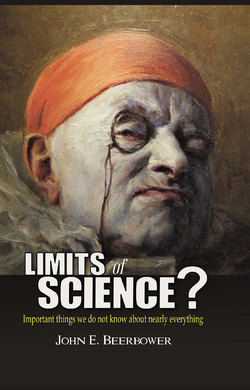Читать книгу Limits of Science? - John E. Beerbower - Страница 55
На сайте Литреса книга снята с продажи.
Expert arrogance
ОглавлениеShapin also sets out the following version of a well-known story:
“There’s a story told about a distinguished cardiac surgeon who, about to retire, decided he’d like to take up the history of medicine. He sought out a historian friend and asked her if she had any tips for him. The historian said she’d be happy to help but first asked the surgeon a reciprocal favor: ‘As it happens, I’m about to retire too, and I’m thinking of taking up heart surgery. Do you have any tips for me?’”
What is the point? Shapin explains that the story demonstrates “a real asymmetry between two expert practices”—one expert (cardiac surgeon) has what are recognized to be real, hard to acquire skills, the other (historian) is thought to do things that can be done by most anyone.
Fair enough, but the telling of the story says something more. First, it indicates that the arrogance of certain experts (and not just physicists) can extend well beyond the areas of their expertise. Second, it shows how the defensiveness toward certain other experts can generate an arrogance toward non-scientists or other sciences in turn (consider the supposed “physics envy” displayed by economists). And, third, this example also demonstrates how both arrogance and defensiveness can get in the way of the business at hand.
Shapin acknowledges that there may be a real and legitimate interest is what a leading physicist of the twentieth century thinks about the historical development of his science, but then spends more time objecting to the lack of humility in the undertaking than in demonstrating the alleged errors in the book that are supposedly apparent to the trained historian. It would be far more constructive to let insights and analyses compete on the merits.
